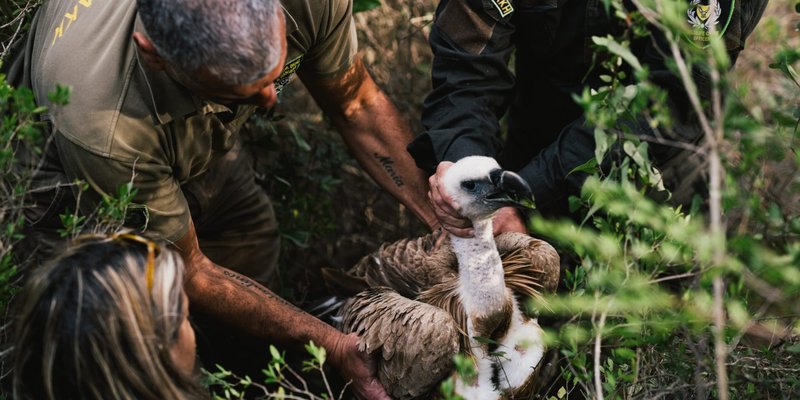
So, why should we care about the Griffon Vulture? For starters, they’re part of the delicate balance of nature. Losing vultures can disrupt ecosystems and lead to serious health issues for other wildlife and even humans. In this article, we’ll explore the various conservation efforts focused on protecting the Griffon Vulture and delve into why these initiatives matter. Grab a cup of coffee, and let’s dive in!
The Importance of Griffon Vultures
Griffon Vultures are more than just scavengers; they’re vital for maintaining healthy ecosystems. By consuming carcasses, they prevent the spread of diseases caused by rotting animals. Imagine a world without them—dead animals would litter the landscape, potentially leading to outbreaks of diseases that could affect livestock and even humans. Without vultures, the natural balance of predator and prey shifts, leading to unforeseen consequences.
These magnificent birds have impressive wingspans, which can reach over eight feet. This ability allows them to soar effortlessly for hours while searching for food. In addition to their ecological role, Griffon Vultures are also cultural symbols in many regions, representing strength and resilience. Losing them would mean losing a significant part of our natural heritage.
So, when we talk about conservation efforts aimed at protecting the Griffon Vulture, we’re not just talking about saving a bird. We’re looking at preserving our ecosystems and, ultimately, our environment. It’s a fight worth joining.
Key Threats to Griffon Vultures
Understanding the various threats faced by Griffon Vultures is critical in addressing their decline. One of the biggest dangers comes from poisoning. Many farmers resort to using poisons to control vermin, but unfortunately, vultures often ingest these toxins when consuming carcasses that have been contaminated. This can lead to significant population declines.
Another significant threat is habitat loss. As urban areas expand and agricultural practices intensify, these birds lose their nesting and feeding grounds. Without safe spaces to breed and hunt, their chances of survival significantly decrease.
Additionally, human interference during nesting seasons can lead to increased stress for these birds, often resulting in abandoned nests. It’s crucial to recognize these threats to understand how conservation efforts can be directed effectively.
Conservation Programs and Initiatives
Numerous conservation programs have been launched to combat the decline of the Griffon Vulture. One notable effort is the Vulture Conservation Programme, initiated in various European countries. This program focuses on raising awareness about the importance of vultures and implementing protective measures in key habitats.
Another initiative includes the establishment of vulture restaurants. This innovative idea provides a safe food source for vultures, thereby reducing the risk of poisoning from contaminated carcasses. By offering carcasses that are free of toxins, we can ensure these birds have a safe area to feed and thrive.
Moreover, organizations are also working on habitat restoration projects. These efforts aim to revive nesting sites and ensure the availability of food. Protecting the habitats where Griffon Vultures live is as important as the birds themselves, contributing to a holistic approach to conservation.
Community Involvement in Conservation
You might be wondering how local communities can help with conservation efforts. Well, community involvement is crucial! Many successful conservation programs involve local people in protecting Griffon Vultures and their habitats. For instance, the Community Conservation and Involvement Initiative educates locals about the significance of vultures in their environment.
Engaging communities not only raises awareness but also fosters a sense of ownership and responsibility. When people understand that vultures are vital for their ecosystem, they’re more likely to partake in conservation measures. Local farmers can benefit from adopting sustainable practices that support vulture populations, which can enhance their farming environment overall.
Additionally, community-led birdwatching tours can encourage eco-tourism, generating income while promoting conservation. When communities see vultures as valuable assets, they naturally become more protective of these birds.
Collaborations Across Borders
Conservation efforts for the Griffon Vulture don’t stop at national borders. Many countries recognize that these majestic birds migrate across regions, making international cooperation essential for their protection. Organizations like the BirdLife International work tirelessly to create cross-border conservation plans, addressing threats that transcend borders.
For example, in the Balkan region, different countries have come together to share resources and strategies to tackle the challenges vultures face. This collaborative approach amplifies the effectiveness of conservation efforts and allows for broader protective measures.
By pooling resources and knowledge, these countries can develop more comprehensive strategies that address the multifaceted threats faced by the Griffon Vulture. It’s all about teamwork to ensure these birds always have a place in our skies.
The Future of Griffon Vulture Conservation
Looking ahead, the future of Griffon Vulture conservation is cautiously optimistic. Continued efforts to combat poisoning and restore habitats are essential to their survival. As awareness grows and more individuals and organizations get involved, we can make a real difference.
You might have heard that “it takes a village,” and that’s especially true in wildlife conservation. With more people advocating for these birds and supporting local organizations, it’s possible to turn the tide for the Griffon Vulture. Every small action counts—whether it’s spreading the word, participating in local cleanups, or supporting eco-friendly farming practices.
In essence, as we work together to promote conservation efforts, we also gain a deeper appreciation for the role of Griffon Vultures in nature. Their survival is intertwined with the health of our ecosystems, and protecting them is a step towards a healthier planet for all of us.
In conclusion, conservation efforts aimed at protecting the Griffon Vulture are crucial, not just for the birds themselves but for the health of our ecosystems as a whole. As we continue to support and promote these initiatives, we take a step forward in ensuring that the skies remain filled with these magnificent birds, carrying on their important role in nature for generations to come.
